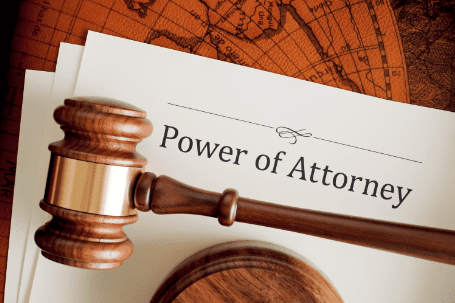You most likely do not have a power of attorney. After all, the majority of Americans do not. According to a Merrill Lynch and Age Wave poll, just one-third of persons 55 and older have a durable power of attorney. The proportion is expected to be substantially smaller among younger generations. If you want a voice in who makes financial decisions for you, you’ll need a power of attorney if you can’t make them on your own. If you are a financial carer for your parents or loved ones, they must appoint you as their power of attorney. You will not be able to conduct financial activities for them until you obtain that designation.
What is the meaning of financial power of attorney?
A financial power of attorney is a legal instrument that allows you to choose someone to manage your funds and property on your behalf. Paying bills, collecting insurance benefits, making bank deposits, and other chores may fall under this category. Your agent or attorney-in-fact is the individual you specify in your POA to make these choices. An accident or sickness may occur at any time, so we never know when they will occur. By entrusting someone to handle your funds and property if you cannot care for these things yourself, you generate peace of mind for yourself and your loved ones.
Who may be designated as a Power of Attorney (PoA)?
The question of who to appoint as Power of Attorney (PoA) might be difficult. In terms of eligibility, a POA can be trustworthy, above 18, and of sound mind. Before appointing someone as a POA, assessing the person’s value system and character is critical. The person appointed as POA should be competent to make strong and unambiguous choices.
What is the purpose of a power of attorney?
The POA empowers the attorney-in-fact (sometimes known as a “agent”) to make decisions concerning your affairs. The sort of POA you design determines which matters an attorney-in-fact can handle until the contract expires or you die. Depending on whatever POA you choose, the decision-making power of an attorney-in-fact takes effect at different periods.
It is important to note that no matter whatever form of POA you pick, it will become null and void when the principal—the person who establishes the POA—dies. When they die, the Trustee of the Trust or the executor of their will is in charge of following their instructions and dispersing assets.
What are the limitations of a durable power of attorney?
A power of attorney is not legally binding unless it is drafted and executed in conformity with the laws of your state. You must also be of sound mind while signing your POA form. Otherwise, it will be invalidated in court. Any words you believe require explanation can be included in your POA agreement. If you’re unclear about how to proceed or what language to use, obtaining the assistance of an attorney can help.
Final Words
A power of attorney, like other estate planning paperwork, is always a good idea to have in place before you need it. If you cannot manage your personal affairs due to illness or injury, your loved ones may be forced to step in and make some decisions for you. You may protect your property by selecting a trusted individual to act as your financial agent before you need one. You may also elect to construct a POA to address concerns after being diagnosed with a degenerative condition. Alzheimer’s, ALS, cancer, and Huntington’s disease are all disorders that sometimes make managing your personal affairs difficult. You form a financial power of attorney after being diagnosed.





























